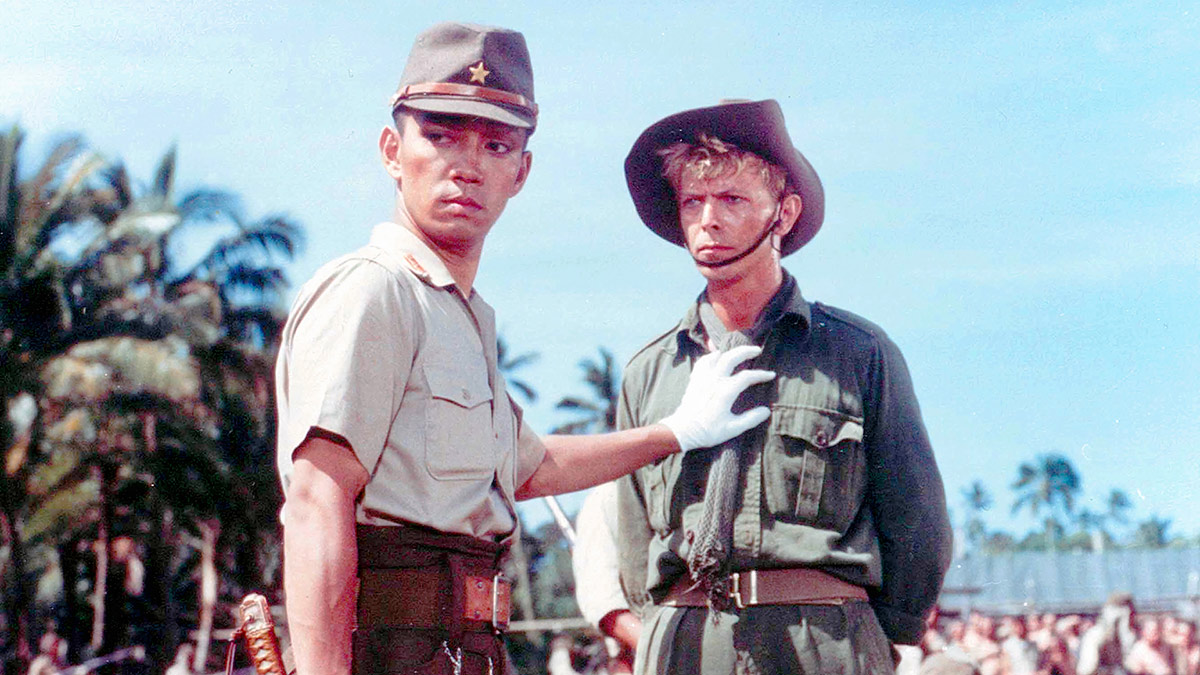
©Oshima Nagisa Productions
"Merry Christmas Mr. Lawrence" Nagisa Oshima x David Bowie x Beat Takeshi x Ryuichi Sakamoto The path to the realization of a unique war movie Part 1
The phantom Oshima work inherited to "Senmeri"
Filming was scheduled to begin on August 10, but Oshima requested a postponement, citing an incomplete script. However, as this was a "blow-hit film" with a set release date, it was impossible to postpone production. On August 3, Oshima met with President Shigeru Okada at Toei's headquarters in Tokyo to discuss aftermath, and it was officially decided that Oshima would step down. A few days later, Oshima's speech announcing his defeat was published in the newspapers.
"People who come to see it will think that the film will reveal previously unrevealed details about the Lockheed Scandal and Yoshio Kodama. I didn't want to disappoint those expectations, so I did a lot of research, but it didn't work out. I guess it's just not possible with the mass production method of major film companies deciding on a release date." (Yomiuri Shimbun Evening Edition, August 6, 1979)
Meanwhile, President Okada said, "Oshima seemed to want to aim for a realistic portrayal of the mastermind, but our idea was to make a companion piece to 'The Boss of Japan'. To put it simply, it's a popular drama, but it seems that he wouldn't be satisfied with a popular drama. We have a script, so we won't change the release date, and we'll have a different director make it" (Asahi Shimbun Evening Edition, August 6, 1979), and Furuhata Yasuo suddenly took over as director. The screenplay was written by Takada, and the completed film was unique for Toei, with Oshima's suggestions remaining throughout - or rather, it left a strange aftertaste. Thus, Nagisa Oshima's version of 'The Mastermind of Japan', which had been in the works for three months, was shattered into an illusion.
Immediately after Oshima's decision to step down, producer Kusakabe muttered, "Oshima-san is rich, isn't she?" Taking his words at face value, and referring to Oshima's income, around the time "Senmei" was released, Oshima said, "It varies, but it's finally exceeded 10 million yen. Financially, my wife is bigger than me" (Weekly Gendai, June 25, 1983 issue). Of course, what Kusakabe is talking about here is not the amount of income. He is talking about his attitude of not working for money. His wife is actress Akiko Koyama, and before he became busy with TV appearances, she supported Oshima's life and film production costs both materially and mentally, but Oshima's strong will not to take jobs that he doesn't like has not changed since his debut as a director. In fact, he once left Shochiku after a breakup with them over "Night and Fog in Japan" and paid the penalty fee because he was in the middle of a contract.
Since Kusakabe had invited Oshima, his withdrawal with the schedule until the release looming must have been a big blow, but Toei producers were so generous that Oshima said, "It was a company that reached out to me," and he said, "I saw in him a kind of right-wing mentality that was separate from his political beliefs, so my desire for him to make a yakuza film remained unchanged" (Cinema no Yakuza: A Generation of Producers). True to his words, he brought another project to Oshima after this, undeterred. That was a documentary about Yamaguchi-gumi boss Taoka Kazuo. Oshima has worked on many documentaries, including "The Forgotten Imperial Army," and if he had used his skills to portray Taoka, it could have been a groundbreaking work, but Taoka's sudden death (1981) put an end to the plan.
Incidentally, Oshima sent a letter of apology to Mikami Hiroshi, who was set to play the role of a young terrorist in "The Blackguard of Japan." According to Mikami, the letter was handwritten and read, "I threw the script away this time," and added, "I wish you a bright future." Three years later, Mikami, now 20 years old, once again went to audition for Oshima's new work, but that's a story for another time.
On August 17, two weeks after stepping down from the project, Oshima was interviewed by film critic Matsuda Masao in the November 1979 issue of the magazine Kokubungaku, in which he revealed that he had already decided what job he wanted to do next, and predicted that he would like to try doing something that explores the relationships between people that are revealed by war.
Ten days The Day After, Oshima had written the first draft of his new script, tentatively titled "In the Prison of Shadows: The Seed and the Sower," which would later be renamed "Merry Christmas Mr. Lawrence."
After In the Realm of the Senses, Oshima's films, up until his final work, Forbidden (1999), were never set in modern Japan. It is said that Oshima, who captured his era so vividly in the 1960s, never turned his gaze towards the present, but this is only the result of looking at only the films he had made. In Japan's Mastermind, Oshima, who had focused on the theme of violence in the 1960s and love in the 1970s, combined the two to create a film depicting a "festival of love and violence" that he was trying to create for the coming 1980s. This theme will no doubt be carried over to War and Mercy.
A revelation to the film adaptation brought about by "In the Hell of Shadows"

